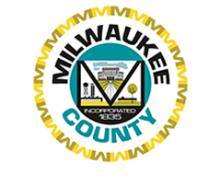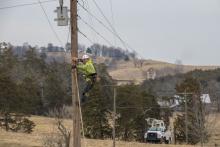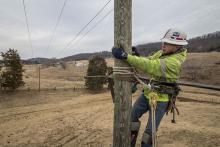New 5G Rules Showing Impact in Milwaukee County, Wisconsin
Milwaukee County, Wisconsin, is currently experiencing firsthand the consequences of the Federal Communications Commission’s (FCC's) 2018 preemption of local governments’ authority to regulate 5G infrastructure in their cities. With its initial handful of applications for new small cell transmitters just submitted to the county board by Verizon under the new rules, local officials are grappling with a host of limitations — including fee caps, shorter timing windows, and right of way exemptions — which outline clearly a problem more and more communities will face in the coming months and years.
Less Say, Less Money
We pointed out when the FCC handed down the order in the fall of 2018 that it represented a significant giveaway to wireless carriers while placing additional restrictions and financial burdens on local regulators, most of which are county boards and city departments. Among the most troublesome of the order’s provisions are new 60- and 90-day approval windows for the installation of infrastructure on existing and new wireless facilities, a limitation to annual fee scales for small cell sites set between $100-250, a right now enjoyed by wireless providers to place infrastructure on municipally owned poles and traffic lights, and a rule that says if regulating authorities don’t get to an application within 60 days it automatically becomes approved. The 9th U.S. Circuit Court of Appeals upheld the fee cap in a ruling last Wednesday.









 In addition to using restrictive pole attachment agreements, incumbents were exploiting the lack of definition in the statute to slow make-ready work, question who pays for make-ready work, and generally delay municipal projects. Time is money and losing momentum can drive up the cost of of a project, which in turn erodes a community's will to see it realized.
In addition to using restrictive pole attachment agreements, incumbents were exploiting the lack of definition in the statute to slow make-ready work, question who pays for make-ready work, and generally delay municipal projects. Time is money and losing momentum can drive up the cost of of a project, which in turn erodes a community's will to see it realized.